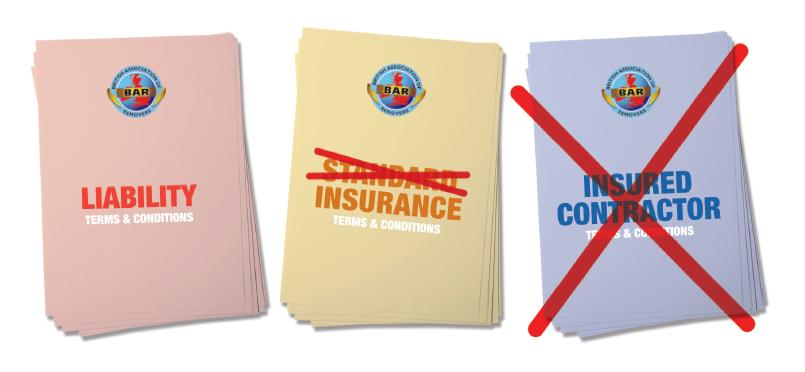The British Association of Removers (BAR) has recently re-issued its terms and conditions and many Reason Global clients have asked what the changes are and which are most appropriate for them. BAR has, of course, provided its own advice and information but here, for the benefit of all moving companies that are still unsure, Reason Global provides further guidance.

Reducing three sets to two
Previously household goods moving companies could choose from three sets of BAR Terms and Conditions depending on whether they operated as an Insured Contractor, sold insurance to their customers, or chose the liability route. Since the deregulation of insurance sales in 2009 very few companies have chosen to operate as Insured Contractors so these conditions have not been revised. Movers today simply choose either to stay with their existing ‘Liability’ conditions or, if they sell insurance to customers, operate on ‘Standard’ trading conditions. For clarity, the two new sets of conditions are now called either ‘Liability’ or ‘Insurance’.
There are also two new alternative sets of Terms and Conditions called ‘Primary Authority’ that have been approved by Hertfordshire Trading Standards. They comply with Unfair Contract Terms and Unfair Trading Terms legislation. Again there is the ‘Liability’ version and the ‘Insurance’ version to be used as appropriate. Movers should see the BAR information for further guidance on the changes to the conditions and the process they need to adopt to change to them.
How do movers choose?
Every moving company can choose which conditions it feels are most appropriate to its needs. However, as it’s likely that companies will be changing to the new editions shortly, now is probably the right time for them to decide to stay with the type of conditions they have already, or make a switch.
Those choosing the ‘Liability’ option should understand, however, that the insurance is provided on an ‘old for old’ basis, policy excesses are not permitted, the Insurance Ombudsman is not available to handle disputes and it is not possible to earn revenue by charging premiums. By comparison, the ‘Insurance’ option provides the option of ‘new for old’ cover, allows the application of an excess, provides access to the Insurance Ombudsman and allows the option of charging premiums. See the chart below.

Liability Terms and Conditions also limit a moving company’s liability to £40 per item under ‘Limited Liability’ unless the customer declares a value for their goods before the move commences in which case a ‘Standard Liability’ up to £25,000 can be agreed with higher levels of liability above £25,000 possible on payment of an additional fee.
Contractual Liability and Legal Liability
These two are often confused. A company’s Terms and Conditions set out the legal agreement under contract law. However a court can set aside the liabilities agreed or denied under those terms and apply Common Law. This is particularly relevant to removers and storers as they have a ‘duty of care’ to their customers’ possessions and, therefore, under Common Law could be held responsible for losses or damages, even if the customer decided not to take either ‘Standard Liability’ or buy insurance.
Moving companies should be careful, therefore, to ensure that their insurance policy provides cover not only for sold insurance or liability agreed under liability terms, but also provides full Legal Liability cover. Every mover should check this carefully with their insurance provider.
The same situation applies for insuring international moves where movers frequently sell insurance but have no back up liability cover if the insurance fails or if the customer elects not to take the offer of cover and hold them liable for any loss or damage. Those that get this wrong could find their mistake to be very costly as not only may you have to compensate the customer for their losses but you may also have to pay for legal costs incurred in defending claims.